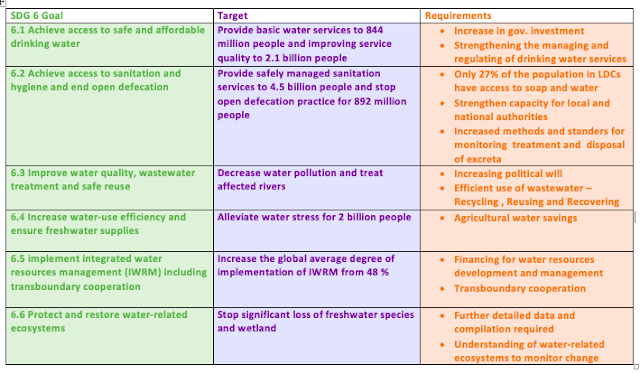When Nature Calls
Today's blog will be in honour of World Toilet Day which took place this week on Monday 19th November. This discussion follows on from last weeks blog which focused on the issues and struggles for those poorest in Africa who did not have access to a modern flushable toilet.
World Toilet Day is about nature-based solutions to our sanitation needs. A report conducted by the World Health Organisation states that 4.5 billion people do not have access to a safe toilet. The dedicated day helps to bring awareness to the fact that the world is NOT on track to meet the sustainable development goal of availability and sustainable management of sanitation and water for all by 2030.
So what are the obstacles between the wastewater management and sanitation provisions?
In the case of Accra, the capital of Ghana, where sanitation is "described as unsatisfactory".Accra produces approximately 2,500 tons per day of municipal solid waste(AMA, 2014). Out of this waste, 67% is organic and 20% plastic and rubber illustrated in Table 1. This high percentage of organic waste is not disposed of properly due to no collection service provided by the government. If organic waste is removed efficiently, it can be recycled and used as compost and fertiliser. However, dumping of this waste does not just add to landfill sites but also increases the harmful carbon in the atmosphere.
 |
| Table 1: Table to show the waste composition in Accra, Ghana Source: AMA,2014 |
- A poor conceptualisation of sanitation
- Lack of adequate sanitary facilities
- Ignorance and irresponsibility of individuals
- Lack of community action
- The rapid growth of unauthorised temporary structures
- Lack of budgetary allocation for sanitation
The AMA projects include the construction of an engineered landfill provision of different sanitary tools and equipment and the development of sewage treatment plants. Argued as a key project, the pay as you throw(PAYT) initiative has statistically shown to decrease illegal dumping and successfully distributed 98,000 waste bins to households in 2010. However, even though the steps are made to change the waste system in Accra 60% of households have not been given waste bins and still in need of an effective waste management system. This case study can stress the importance of the need for new ways of waste management.
The World Toilet day is a great way to increase knowledge on why fundraising and recognition are needed to provided sanitation provision globally. I would like to end this blog on the shaming fact that in today's world more people have access to a mobile phone (87%) than access to a safe toilet (63%) - UN, 2013. This for me shows how there has been a shift in importance from the human right to have a safe toilet to the availability and access to advancing technology. I think if the world can make a mobile phone so affordable then a basic flushable toilet should be just as accessible.



Thanks for this timely post on World Toilet Day. Might a subsequent post examine what constrains improved access to sanitation in Accra and other conurbations?
ReplyDeleteHi Richard, I very much enjoyed researching about World Toilet Day having not heard about it until starting this Blog! Yes i think that would be useful in revealing underlying problems to improved access to sanitation. Will take this feedback on board. Thanks!
DeleteHi Alisha! I enjoyed the post which raised thought provoking points!
ReplyDeleteThough, your last line 'basic flushable toilet should be just as accessible' surprised me as many articles I've been reading raise issues with the 'holy grail' of the porcelain flush toilet. For example, the South Africa's violent “service delivery protests” in townships and informal settlements aim to bring the ANC government's 1994 into fruition. With citizens feeling it is not being met partly because ideas of dignified and modern toilets are associated with flush toilets, leading to the rejection of NGO sustainable “alternative technologies” as seen in 2015 in the settlement of Enkanini who rejected the iShack solar energy project. Do you feel this idea around flush toilets, that you also hold, is a barrier to development and improving sanitation?
(Source: Redfield & Robins 2016 https://www.tandfonline.com/doi/abs/10.1080/23323256.2016.1172942)
Hi Liz, thank you very much for such a detailed reply! Following from your response I have done some research on the "service delivery protest", I do agree accessible flushable toilets for all in Africa is the idealistic view point. I think a barrier to development is the participation of communities, I have discovered many projects which are not sustained or maintained are due to a lack of local support. Alternative technologies as a solution I will be focusing on Part 2 of my "Water For All" , identifying the pros and cons - also identifying if alternative technologies are a solution. Please stay tuned!
Delete